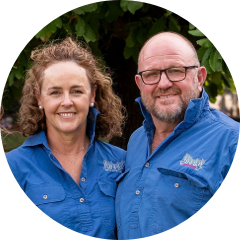Increased soil carbon by accelerated humus formation from crop residues
This project was completed in 2015.
Project Officer
Dr Bill Slattery
WHY THIS PROJECT WAS NEEDED
Broadacre cropping is an incredibly complex undertaking. However, one thing that stays constant is the importance of the soil resource in sustaining production.
By understanding the detail behind soil processes we can improve the ability of soil to release nutrients, support large and diverse microbial communities and provide infiltration and water storage for optimal plant growth, among many other things.
Now, not only do we regard soil carbon as being part of ‘organic matter’, in partnership with a host of other nutrients, we can also visualise and describe different chemical structures within the umbrella of soil carbon, which means we can separate components (or fractions) based on different criteria.
This growing base of knowledge has supported how we view the different roles carbon plays in soil, and we acknowledge it is not the same entity of soil carbon that supports nutrient cycling, as supports carbon sequestration (and thus mitigates greenhouse gases).
In short: The project aimed to increase soil carbon sequestration through stubble residues and reduce nitrous oxide emissions through innovative on-farm practices.
This project aimed to understand how we can effectively increase the amount of total soil carbon in cropping systems, which is notoriously hard to do due to the annual, disrupted nature of cropping systems.
The project also aimed to understand if farmers can more effectively utilise the large amounts of carbon-rich material our crops produce each year and find ways to convert more of the above-ground stubble into soil carbon, to derive optimal value from it.
Project focus
The project aimed to trial and demonstrate innovative on-farm practices that could increase the sequestration of carbon located in soil under cereal crops, through accelerated stubble residue decomposition and nutrient management to increase humus production.
It also aimed to quantify relative changes in soil carbon and nitrous oxide emissions due to post-harvest fertiliser application.
Project outcomes
The key findings of this project were:
- Over two years of measurements, soil carbon (C) values had not significantly increased with fertiliser or stubble treatments
- Nitrous oxide (N2O) emissions increased when fertiliser was applied to stubble post-harvest
- While the effects of fertiliser addition on grain yields were inconsistent, stubble management was important in determining yield across all sites.
The final report for this project, Soil Carbon in Cropping Systems was produced with the support of the Fast Tracking Innovation Initiative, made possible with the support of the Foundation for Rural and Regional Renewal (FRRR) together with the William Buckland Foundation.
Find out more
For further information. please email info@riverineplains.org.au
Project investment
Partners
MORE ON Soils & Grains
Our research enhances food production, increases environmental resilience and improves community connection across the Riverine Plains. See how our research creates impact.
-
Grains
Sustainability
-
Grains
Business
-
Grains
Sustainability
-
Grains
Livestock
-
Grains
Livestock
-
Soils
Sustainability
-
Soils
Sustainability
-
Grains
Sustainability
-
Grains
Business
-
Grains
Sustainability
-
Grains
-
Grains
-
Soils
Grains
-
Soils
Sustainability
-
Grains
Soils
-
Drought
Grains
-
Soils
Grains
-
Grains
-
Grains
Soils
-
Soils
Grains
-
Fodder
Grains
-
Grains
-
Soils
Sustainability
-
Grains
-
Soils
Sustainability
-
Grains
Soils
-
Sustainability
Grains
-
Grains
Sustainability
-
Soils
Grains
-
Soils
Climate
-
Grains
Sustainability
-
Soils
Climate
-
Livestock
Grains
-
Grains
Soils
-
Sustainability
Grains
JOIN RIVERINE PLAINS
Riverine Plains provides opportunities to see new research and innovation, connect with rural communities, and attend informative events.


